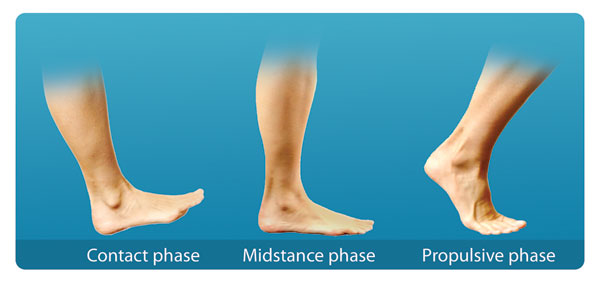
First, let's talk about what is supposed to happen to your foot when you walk. In a very elementary sense, when you rock forward over your foot that is planted to the ground your toes are supposed to be allowed to stay flat to the ground (extend) while the longer bones of your foot (metatarsals) will point down (plantarflex) as your heal lifts off the ground.
However, when you wear an open-backed shoe such as flip-flops, your toes have to claw or grab at the shoe in order for it to stay on your foot. Unfortunately, this is often happening when your toes are supposed to be straight.
Because your toes are flexed when they are supposed to be extended, your metatarsals are unable to plantarflex, which disrupts the ability of your foot to become a rigid lever, further disrupting your ability to efficiently roll forward through gait.
These altered foot mechanics have far too many potential consequences to list, but in general I think it would be fair to say that by altering the mechanics of the joints of the foot during gait, the forces being imposed across these structures are not ideal for the long term well-being of these structures, the degradation of which may lead to different types of bone growths as well as other orthopedic issues as your body tries to compensate for the stresses being placed upon it.
So, is this post trying to get you to throw out all of your beloved flip flops and other open-backed shoes? Not exactly. But it is trying to educate you on the potential consequences of regularly wearing the season's most common form of footwear.
And if you feel the need to consistently wear your flops, at the very least do yourself the favor of trying to ensure that your feet are as well-supported by your muscles as they can be by setting up a tune-up with your local Muscle Activation Techniques™ specialist.
While having all of your foot and lower leg muscles working optimally won't necessarily alter the need to grab on to your flops with your toes every step, it will help to make sure those issue aren't compounded by giving your foot the best chance possible to work as ideally as it can once you remove the open-backed shoe.
Are your feet (and ankles and knees and hips and spine) ready to rock your flops all summer?
Interested in finding out more? Check out the Muscle Activation Techniques™ page!
Interested in setting up an assessment or discussing this subject further? Leave a comment below or e-mail Charlie at charlie@selfmadefitness.com!
Your body. Your training.
Like this post? Drop a comment below and “Like” Self Made® on Facebook!
Want to use this article in your blog, newsletter, or other platform? You may, but be sure to include all of the biographical info found in the yellow box below!



No comments:
Post a Comment